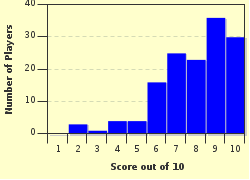Quiz Answer Key and Fun Facts
1. We'll start with a toughy! Gordon Lightfoot's song about the building of the Canadian Pacific Railway, "Canadian Railroad Trilogy", was commissioned by the CBC for use on their t.v. special about Canada's 100th birthday.
His never released song, "Land With No Name", was also commissioned by another large Canadian company for a t.v. documentary called "Sea to Sea".
What's the name of the large coast to coast Canadian enterprise that commissioned his song?
(hmmmm..it's like these freight companies were competing for Gord's music as well as clients)
2. Speaking of songs about trains, Gordon's first solo album, "Lightfoot", included a song that included song lines about travelling on a train back to the one he loves, which he couldn't do because he tells us in the song that "I gambled my ticket away."
What's the title of this sad story song?
3. The acoustic bass guitarist playing on Gord's album "Lightfoot", Bill Lee, is actually the father of a fellow who is famous for his work in the Hollywood movie industry.
Who is the famous son of Bill Lee, the man who played acoustic bass on the album "Lightfoot"?
(regarding the famous son, all I can tell you is that "He Got Game!")
4. If you walked into a music store and asked an employee to see Gordon Lightfoot's musical selections, which genre section would you likely be steered toward?
(Despite Gord's nearly six decades in the business, he still doesn't consider his music to be this genre, but Gord IS part of this 'good' group!)
5. Gord released this song in 1966, but it was first recorded by Ian and Sylvia Tyson over a year before Gordon recorded it on "Lightfoot". It is his most often covered song by other artists. The song contains the line "You can't jump a jet plane, like you can a freight train".
What's the title of this song?
6. In the first quiz I submitted on Gordon Lightfoot, I spoke about his powerful protest song, "Black Day in July". His debut album, "Lightfoot", also included a protest song called "Pride of Man", which was written by his friend and fellow musician, Hamilton Camp, late in 1962.
What critical situation in 1962 was the song "Pride of Man" protesting?
7. Gordon Lightfoot was building a successful career with an ever growing throng of loyal fans that thrived on the the anti-war sentiment of the times. But Gord was also quickly becoming known for his ability to pen soul soothing love ballads as well.
Which song, from his album "The Way I Feel", tells us, "I would be happy just to hold the hands I love, On this winter night with you"?
8. One of Gord's dreams was to star in a Hollywood movie production. The dream came true in 1982 when he co-starred alongside Bruce Dern and Michael Gwynne, who are starring as the last two living renegades from Butch Cassidy's Wild Bunch.
What was the name of the movie Gordon Lightfoot starred in as a lawman?
9. Gordon Lightfoot credits another very successful musician with being his largest musical influence.
Which wiry-haired singer-songwriter of Jewish ancestry does Gord credit as being his number one 'musical peer'?
(this artist doesn't use his real surname)
10. In 1976, Gord recorded a song about a ship that sank in Lake Superior, taking the lives of all 29 sailors aboard. It turned out to be Lightfoot's all-time best selling single as well as his all time best selling album.
What's the name of this haunting musical ballad?
Source: Author
krazykritik
This quiz was reviewed by FunTrivia editor
agony before going online.
Any errors found in FunTrivia content are routinely corrected through our feedback system.

